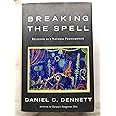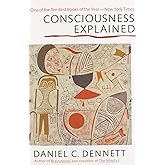
Enjoy fast, free delivery, exclusive deals, and award-winning movies & TV shows with Prime
Try Prime
and start saving today with fast, free delivery
Amazon Prime includes:
Fast, FREE Delivery is available to Prime members. To join, select "Try Amazon Prime and start saving today with Fast, FREE Delivery" below the Add to Cart button.
Amazon Prime members enjoy:- Cardmembers earn 5% Back at Amazon.com with a Prime Credit Card.
- Unlimited Free Two-Day Delivery
- Streaming of thousands of movies and TV shows with limited ads on Prime Video.
- A Kindle book to borrow for free each month - with no due dates
- Listen to over 2 million songs and hundreds of playlists
- Unlimited photo storage with anywhere access
Important: Your credit card will NOT be charged when you start your free trial or if you cancel during the trial period. If you're happy with Amazon Prime, do nothing. At the end of the free trial, your membership will automatically upgrade to a monthly membership.
Buy new:
$30.00$30.00
Ships from: Amazon.com Sold by: Amazon.com
Save with Used - Good
$14.90$14.90
Ships from: Amazon Sold by: Lavender Road LLC

Download the free Kindle app and start reading Kindle books instantly on your smartphone, tablet, or computer - no Kindle device required.
Read instantly on your browser with Kindle for Web.
Using your mobile phone camera - scan the code below and download the Kindle app.

OK
 Audible sample Sample
Audible sample Sample 


From Bacteria to Bach and Back: The Evolution of Minds 1st Edition
Purchase options and add-ons
One of America’s foremost philosophers offers a major new account of the origins of the conscious mind.
How did we come to have minds?
For centuries, this question has intrigued psychologists, physicists, poets, and philosophers, who have wondered how the human mind developed its unrivaled ability to create, imagine, and explain. Disciples of Darwin have long aspired to explain how consciousness, language, and culture could have appeared through natural selection, blazing promising trails that tend, however, to end in confusion and controversy. Even though our understanding of the inner workings of proteins, neurons, and DNA is deeper than ever before, the matter of how our minds came to be has largely remained a mystery.
That is now changing, says Daniel C. Dennett. In From Bacteria to Bach and Back, his most comprehensive exploration of evolutionary thinking yet, he builds on ideas from computer science and biology to show how a comprehending mind could in fact have arisen from a mindless process of natural selection. Part philosophical whodunit, part bold scientific conjecture, this landmark work enlarges themes that have sustained Dennett’s legendary career at the forefront of philosophical thought.
In his inimitable style―laced with wit and arresting thought experiments―Dennett explains that a crucial shift occurred when humans developed the ability to share memes, or ways of doing things not based in genetic instinct. Language, itself composed of memes, turbocharged this interplay. Competition among memes―a form of natural selection―produced thinking tools so well-designed that they gave us the power to design our own memes. The result, a mind that not only perceives and controls but can create and comprehend, was thus largely shaped by the process of cultural evolution.
An agenda-setting book for a new generation of philosophers, scientists, and thinkers, From Bacteria to Bach and Back will delight and entertain anyone eager to make sense of how the mind works and how it came about.
4 color, 18 black-and-white illustrations- ISBN-100393242072
- ISBN-13978-0393242072
- Edition1st
- PublisherW. W. Norton & Company
- Publication dateFebruary 7, 2017
- LanguageEnglish
- Dimensions6.6 x 1.7 x 9.6 inches
- Print length496 pages
Frequently bought together

Similar items that may deliver to you quickly
Editorial Reviews
Review
― Nature
"In From Bacteria to Bach and Back, his eighteenth book (thirteenth as sole author), Dennett presents a valuable and typically lucid synthesis of his worldview . . . . Dennett is always good company . . . . he writes with wit and elegance . . . . distinctive."
― Thomas Nagel, The New York Review of Books
"If you have not encountered [Dennett’s] work, you surely should . . . very few contemporary thinkers have supplied us with so many ‘thinking tools.’ . . . . Dennett’s book is astonishingly rich and will introduce you to most of the key ideas in the terrain he strides energetically across."
― Adam Zeman, Standpoint
"Illuminating and insightful. . . . [Dennett] makes a convincing case, based on a rapidly growing body of experimental evidence, that a materialist theory of mind is within reach. . . . His ideas demand serious consideration."
― Publishers' Weekly
"A subtle and interesting argument."
― Stephen Rose, The Guardian
About the Author
Product details
- Publisher : W. W. Norton & Company; 1st edition (February 7, 2017)
- Language : English
- Hardcover : 496 pages
- ISBN-10 : 0393242072
- ISBN-13 : 978-0393242072
- Item Weight : 1.85 pounds
- Dimensions : 6.6 x 1.7 x 9.6 inches
- Best Sellers Rank: #170,880 in Books (See Top 100 in Books)
- #77 in Atheism (Books)
- #299 in Consciousness & Thought Philosophy
- #567 in History & Philosophy of Science (Books)
- Customer Reviews:
About the author

Discover more of the author’s books, see similar authors, read author blogs and more
Customer reviews
Customer Reviews, including Product Star Ratings help customers to learn more about the product and decide whether it is the right product for them.
To calculate the overall star rating and percentage breakdown by star, we don’t use a simple average. Instead, our system considers things like how recent a review is and if the reviewer bought the item on Amazon. It also analyzed reviews to verify trustworthiness.
Learn more how customers reviews work on Amazon-
Top reviews
Top reviews from the United States
There was a problem filtering reviews right now. Please try again later.
First of all, Dennett segregates living creatures into four major categories based on the adaptive mechanisms that allow them to survive and reproduce. They are:-
1. Darwinian creatures: competence (without comprehension)
2. Skinnerian creatures: competence and learning.
3. Popperian creatures: competence, learning and reasoning.
4. Gregorian creatures: competence, learning, reasoning and comprehension (humans).
Most of his insightful discussion revolves around how humans became Gregorian creatures as a consequence of brains that became infected by cultural "memes" (words and other thinking tools), that ultimately led to comprehension, foresight, and intelligent, purposeful design.
I think this is a very interesting idea.
However I believe his conclusions are problematic. Here they are.
1. “We can then see human consciousness as a user-illusion, not rendered in the Cartesian Theater (which does not exist) but constituted by the representational activities of the brain coupled with the appropriate reactions to those activities.”
2. Elsewhere he states “There are structural, chemical properties of glucose—mimicked in saccharine and other artificial sweeteners—that cause the sweetness response in our nervous systems, but “the intrinsic, subjective sweetness I enjoy” is not an internal recreation or model of these chemical properties, nor is it a very special property in our non-physical minds that we use to decorate the perceptible things out there in the world. It is no property at all; it is a benign illusion.”
These conclusions reflect Dennett’s belief that because there is causal closure in the physical world, conscious subjective experiences, like our sensations and feelings, are nothing more than benign illusions that have no functional value. The alternative, I suggest, is that conscious experiences are “adaptive illusions” that have enormous functional value. The evidence for this is compelling (see “Why We Feel”).
Indeed, the world outside of us is filled with electromagnetic radiation, air pressure waves and chemicals floating in the air or dissolved in fluids, but it is pitch dark, silent, tasteless and odorless in the absence of a conscious brain. Our color sensations are highly refined discriminations between electromagnetic frequencies that are almost identical, and our feelings, unpleasant and pleasant, are discriminations between events that are (or were) threats or benefits to our reproductive success. It is certainly not an accident that our most intense pleasurable feelings (orgasms) are experienced when we are closest to reproducing. (If such feelings were non functional epiphenomena, as Dennett suggests, then there would be no consequences to feeling happy when our lover dies, or angry when we won the lottery.) Indeed, by favoring functional subjective experiences, over generations natural selection has consistently modified and refined the neural mechanisms that generate such experiences. They add meaning to mere existence!
That being said, it's hard to say what this book is really about since it's about so many different things. As another reviewer pointed out, Dennett's digressions can sometimes be distracting and it is difficult to see the central point in his argument. The book also doesn't seem to present a novel hypothesis per se. Its ostensible purpose is to describe the evolution of human minds and thinking and what makes them special. It succeeds in this endeavor to a large extent, but still doesn't end up really explaining key concepts like consciousness (which Dennett thinks is an illusion). The main device that Dennett uses for unraveling intelligence and minds is the concept of memes which was introduced by Richard Dawkins. According to Dennett, the co-evolution of genes and culture through memes is what makes human minds special. Again, gene-culture co-evolution is not a new concept, but Dennett explores it with verve and insight.
I think the main function of this book is to serve as a springboard for exploring some very clever analogies between software and biology and for appreciating the naturalistic evolution of human language and thinking. There are gems scattered throughout the text: for instance, the concept of "competence without comprehension" which is a version of Dawkins's "blind watchmaker" analogy, and the very revealing insight that simple things like nail cutters might be impossible to imagine arising through natural selection while complicated things like human minds can well be imagined evolving this way. There are also excellent discussions on how children acquire words and how these words then interact with genetics and culture to produce very human features of the brain like foresight, introspection and planning for the future. Some of this material constitutes an argument against intelligent design. The analogies are elegant and often clever and Dennett's play on words can be very subtle; for this reason several paragraphs may have to be read a few times to really grasp their essence. In this sense the book has to be savored and resampled like fine wine.
In general then, I enjoyed the book but found it too digressive and slow-going in parts. On several occasions I found Dennett slipping into academic language, with the academic references and jargon to boot. Reading this volume requires patience and careful study, and this patience will often be rewarded. But it's not what you would call an introductory or popular treatment: if you are not familiar with standard popular works on evolution, language and psychology by writers like Richard Dawkins, Steven Pinker, Matt Ridley or Daniel Kahneman it would likely be pretty hard going. But as a sampling of scattered gems which reveal themselves through rumination and constant reflection, it's hard to find a writer as clever and insightful as Daniel Dennett.













